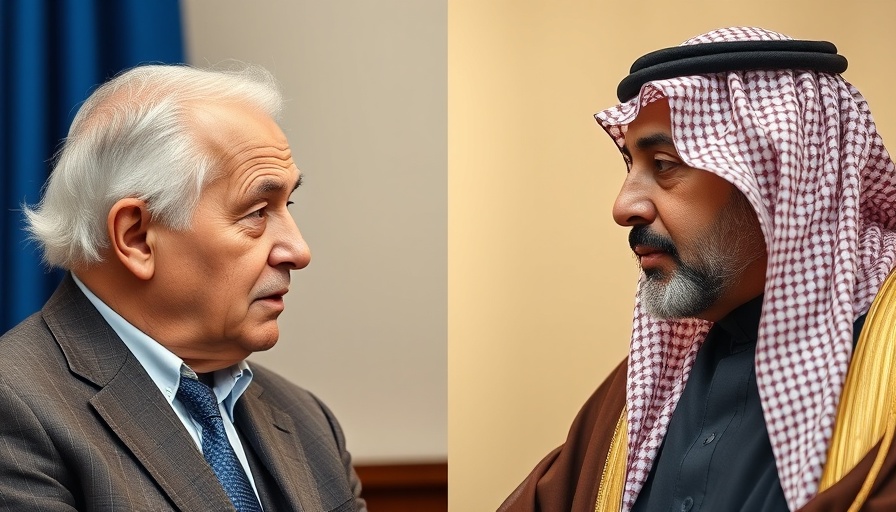
Trump's Diplomatic Outreach: A New Letter to Iran
In a surprising move, former President Donald Trump has reached out to Iran, sending a letter to Ayatollah Ali Khamenei where he expressed his ongoing desire to negotiate a nuclear agreement. Trump’s letter comes at a pivotal time, as tensions between the United States and Iran continue to escalate, particularly due to Iran’s advanced uranium enrichment activities.
During an interview, Trump stated, "The other alternative is you have to do something because Iran cannot have a nuclear weapon." This firm stance underscores the former president's perceived necessity to address Iran’s nuclear ambitions head-on. Trump's call for negotiations is reminiscent of past diplomatic efforts, specifically the 2015 Obama-era nuclear deal, which his administration infamously abandoned in 2018.
The Stakes of Nuclear Negotiations
Trump finds himself in a situation where the pressure is immense. He has hinted that failure to reach an agreement could risk military confrontation, saying, "If we have to go in militarily, it’s going to be a terrible thing." This dual approach—seeking peace while underscoring the potential for conflict—illustrates the complexity of international diplomacy concerning Iran.
Many analysts and global citizens have expressed skepticism about Trump's ability to regain Iran's trust due to his previous commitment reversals. Iran’s Foreign Minister, Abbas Araghchi, has firmly dismissed Trump’s overtures, emphasizing that discussions cannot resume until the United States ends its "maximum pressure" sanctions policy.
Historical Context: The Threat of a Nuclear Iran
This latest engagement occurs against a backdrop of heightened tensions. Since the U.S. exited the nuclear deal, Iran has accelerated its production of weapons-grade uranium, leading to warnings from international bodies like the IAEA about imminent nuclear armament. Historical precedents show that unresolved nuclear capabilities can lead to devastating conflicts, heightening the urgency for effective negotiations.
Trump's administration previously pursued aggressive sanctions, resulting in significant shifts in Iran’s economy. As seen in the aftermath of his decision to abandon the nuclear agreement, the region's political landscape has changed dramatically, complicating the return to diplomacy.
Implications for Global Politics
The former president's letter highlights broader concerns that extend beyond U.S.-Iran relations. Countries across the globe watch closely as the situation unfolds, aware that a nuclear-armed Iran poses risks that could destabilize the entire Middle East. Diplomacy, therefore, remains essential not only for regional peace but for global security.
Future Scenarios: What Lies Ahead?
The path forward remains uncertain. While Trump seeks a new agreement with Iran, the skepticism from Tehran suggests that trust must be rebuilt before meaningful discussions can occur. Observers are left wondering: Will continued diplomatic outreach yield fruitful results, or will military options once again overshadow efforts for peace?
As we navigate this complex geopolitical landscape, the importance of compassion and understanding cannot be overstated. Engaging in dialogues that reflect the God-given dignity of every individual, regardless of nationality, is vital for true reconciliation and peace.
Call to Action: Engage with Global Justice Efforts
As we reflect on the tensions and potential resolutions in the U.S.-Iran dialogue, consider how you can contribute to global peace and justice. Supporting organizations that foster interfaith dialogue and humanitarian relief can help address the root causes of conflict. Let’s work together towards a future where peace prevails.
 Add Row
Add Row  Add
Add 








Write A Comment